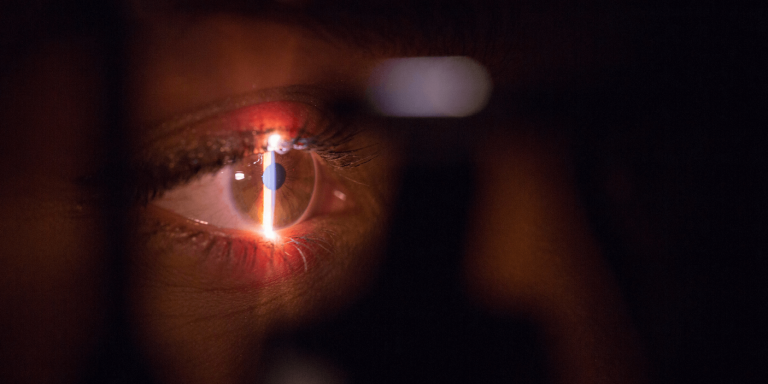
One of the complications of diabetes can be diabetic retinopathy, which is damage to the retina, a thin membrane essential to vision that covers the back of the eye, ultimately resulting in decreased vision and even blindness. In June 2018, DIAGNOS, which specializes in AI-enabled screening for serious diseases, launched an AI-assisted automated diabetic retinopathy screening project with the Centre Hospitalier de l’Université de Montréal (CHUM). On May 26, both companies announced the launch of the testing phase of the autonomous AI solutions dedicated to this screening.
Diabetes is a chronic disease characterized by an excess of sugar in the blood. There are 2 different types of diabetes, due to different dysfunctions: type 1 diabetes and type 2 diabetes. Type 2 diabetes is the most common and is increasing rapidly.
According to figures from the Pasteur Institute of Lille, there were 463 million diabetics aged 20 to 79 years in the world in 2020, including 5 million in France. Moreover, it is estimated that 700,000 people in our country have this metabolic disease and are unaware of it. However, many complications can occur, affecting the heart and arteries, eyes, kidneys, nerves, feet, preventing them is essential.
Early detection of diabetic retinopathy is very important because treatments are possible, otherwise at an advanced stage, blindness can occur and is then irreversible.
Launch of the clinical study
The launch of this clinical study will make it possible to establish, in a precise manner, the level of performance of autonomous algorithms for identifying and classifying the level of severity of the disease in patients with diabetic retinopathy.
André Larente, president of DIAGNOS, states:
“THIS PHASE INITIATES THE CONCLUSION OF THE PARTNERSHIP AIMED AT AUTOMATED DETECTION OF DIABETIC RETINOPATHY STARTED IN JUNE 2018. THIS PHASE OF TESTING AND PERFORMANCE ANALYSIS WAS APPROVED BY CHUM, FOLLOWING THE POSITIVE RESULTS OF EVALUATION OF THE CLASSIFICATION ALGORITHMS BY SEVERITY LEVEL IN AUTONOMOUS MODE ENCOUNTERED IN RECENT MONTHS, FOLLOWING A RIGOROUS INDEPENDENT EVALUATION PROCESS THAT CHUM CLINICIANS CONDUCTED.”
The retinal fundus images of more than 600 diabetic patients from the CHUM endocrinology department will be analyzed by the DIAGNOS “NeoRetina” deep learning algorithm in collaboration with the CHUM ophthalmology department. The latter allows the identification of lesions caused by diabetic retinopathy and the classification of the evolution of the disease by level of severity. Carried out in a “double-blind” comparison mode, this test will allow CHUM professionals to precisely establish the level of performance and accuracy of NeoRetina’s autonomous algorithms.
AI will increase the number of screenings, CHUM’s head of endocrinology, Andrée Boucher states:
“DIABETIC RETINOPATHY AFFECTS MANY DIABETIC PATIENTS. HOWEVER, SINCE IN THE INITIAL STAGES OF THE DISEASE, PATIENTS ARE GENERALLY ASYMPTOMATIC AND SYMPTOMS USUALLY ONLY APPEAR IN THE LATER STAGES OF THE DISEASE, THIS STAND-ALONE SCREENING MODALITY, WHICH CAN BE EASILY PERFORMED AT THE TIME OF THE PATIENT’S ANNUAL EXAMINATION, WILL ALLOW US TO REDUCE THE NUMBER OF COMPLICATIONS THAT CAN LEAD TO BLINDNESS.
Dr. Salim Lahoud, head of the CHUM’s ophthalmology department, says that screening for diabetic retinopathy using AI solutions developed by DIAGNOS will help prioritize and improve the speed of patient management by the ophthalmologists in his department. Fast, efficient and accurate, they will significantly reduce screening costs.
Diabetes being the second most important cause of blindness in Canada, the integration of these solutions in the medical follow-up programs of diabetic patients will allow them to preserve their sight…
Dr. Fabrice Brunet, President and CEO of the CHUM, concludes:
“THIS PROJECT IS COMPLETELY IN LINE WITH THE CHUM’S DESIRE TO IMPROVE THE ACCESSIBILITY OF SERVICES TO PATIENTS THROUGH PARTNERSHIPS THAT ALLOW THE DEVELOPMENT AND INTEGRATION OF INNOVATIVE SOLUTIONS.”
Translated from Canada : Retour sur le partenariat du Centre Hospitalier de Montréal et de DIAGNOS pour le dépistage de la rétinopathie diabétique









